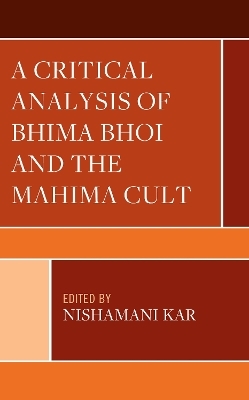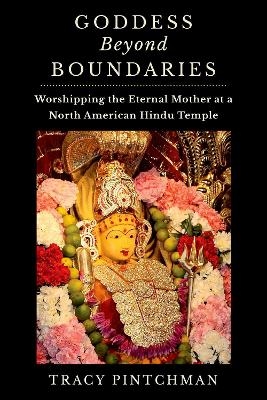
A Critical Analysis of Bhima Bhoi and the Mahima Cult
Seiten
2024
Lexington Books/Fortress Academic (Verlag)
978-1-6669-5557-6 (ISBN)
Lexington Books/Fortress Academic (Verlag)
978-1-6669-5557-6 (ISBN)
The book is a rare compendium of insightful essays by eminent Indian scholars on the Mahima Cult, its genesis, and its growth. The volume focuses on Bhima Bhoi, the poet-philosopher and the prime interlocutor of the Renegade Faith, who started a revolt from below to champion human rights.
A Critical Analysis of Bhima Bhoi and the Mahima Cult is a rare compendium of insightful essays by eminent Indian scholars on the Mahima Cult, its genesis, and its growth. The volume focuses on Bhima Bhoi, the poet-philosopher and the prime interlocutor of the Renegade Faith, who started a revolt from below to champion human rights. To critically appreciate the Saint-poet Bhima Bhoi and the Mahima Cult (Dharma of Glory), the history of the 19th-century Indian sociocultural system, especially that of Odisha and its adjoining states, needs to be reconstructed. Since there is no surviving oral and written text authored by the founder of the cult, Mahima Swami, it is only the unlettered genius Bhima Bhoi, who produced innumerable prayers, hymns, and poetic recitals of profound philosophical import, which made him the legend, the poet-archivist, and historiographer of the Mahima Cult. Bhima was simultaneously the poet of the soul and the soil, who used theology and social experience to provide a supportive sub-structure to a transcendent, ecstatic vision. This volume asserts that Mahima Dharma is an autochthonous reform movement and a regional variation of the Indian Bhakti tradition and mystical poetry.
A Critical Analysis of Bhima Bhoi and the Mahima Cult is a rare compendium of insightful essays by eminent Indian scholars on the Mahima Cult, its genesis, and its growth. The volume focuses on Bhima Bhoi, the poet-philosopher and the prime interlocutor of the Renegade Faith, who started a revolt from below to champion human rights. To critically appreciate the Saint-poet Bhima Bhoi and the Mahima Cult (Dharma of Glory), the history of the 19th-century Indian sociocultural system, especially that of Odisha and its adjoining states, needs to be reconstructed. Since there is no surviving oral and written text authored by the founder of the cult, Mahima Swami, it is only the unlettered genius Bhima Bhoi, who produced innumerable prayers, hymns, and poetic recitals of profound philosophical import, which made him the legend, the poet-archivist, and historiographer of the Mahima Cult. Bhima was simultaneously the poet of the soul and the soil, who used theology and social experience to provide a supportive sub-structure to a transcendent, ecstatic vision. This volume asserts that Mahima Dharma is an autochthonous reform movement and a regional variation of the Indian Bhakti tradition and mystical poetry.
Nishamani Kar is a retired Group ‘A’ Officer of Govt. of India (Ministry of Defence), superannuated from the National Defence Academy, Khadakwasla, Pune, as Head of English faculty, and is presently working as the Senior Consultant, ‘Bharatiya Bhasha Samiti’ (Ministry of Education, Govt. of India).
| Erscheinungsdatum | 17.04.2024 |
|---|---|
| Reihe/Serie | Explorations in Indic Traditions: Theological, Ethical, and Philosophical |
| Co-Autor | Basant Kumar Dash, Bijoy Kumar Nanda, Fanindam Deo, Gagan Behari Das |
| Sprache | englisch |
| Maße | 161 x 237 mm |
| Gewicht | 535 g |
| Themenwelt | Geisteswissenschaften ► Religion / Theologie ► Hinduismus |
| ISBN-10 | 1-6669-5557-4 / 1666955574 |
| ISBN-13 | 978-1-6669-5557-6 / 9781666955576 |
| Zustand | Neuware |
| Haben Sie eine Frage zum Produkt? |
Mehr entdecken
aus dem Bereich
aus dem Bereich
Worshipping the Eternal Mother at a North American Hindu Temple
Buch | Hardcover (2024)
Oxford University Press Inc (Verlag)
79,80 €


